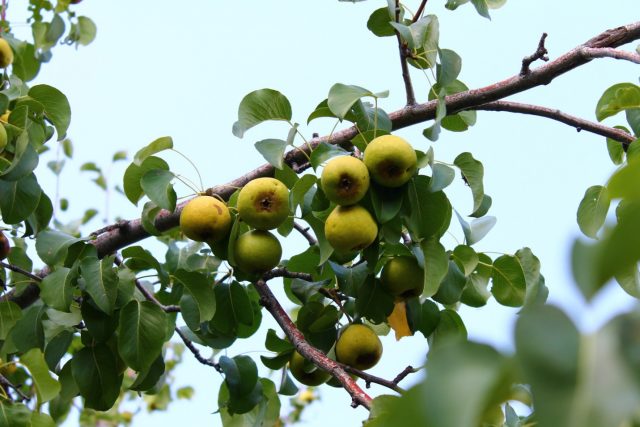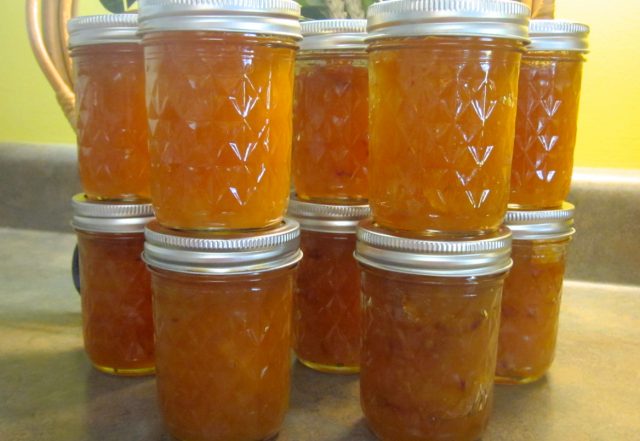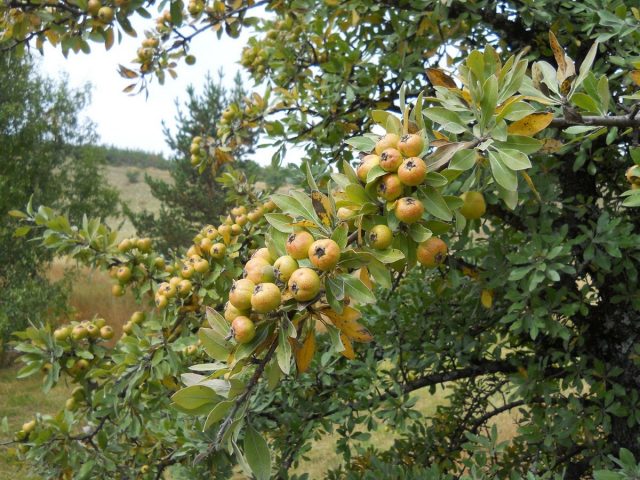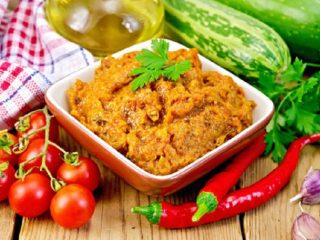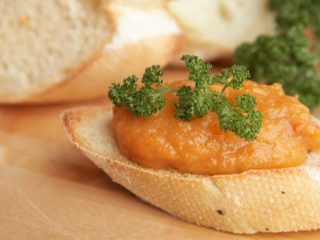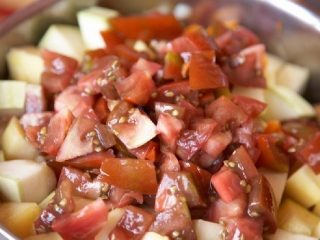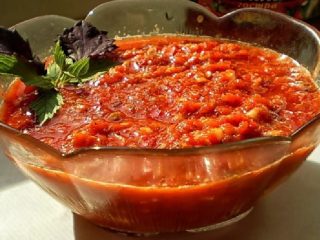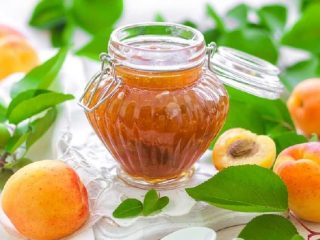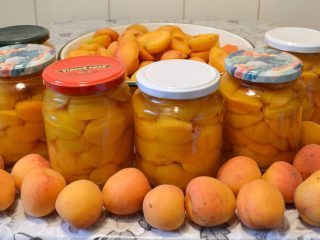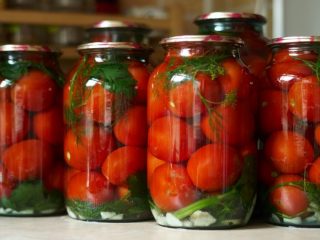Content
Wild pear (forest) - a kind of common pear. A tree up to 15 meters high with a dense crown, a life cycle of about 180 years. Bears fruit for 8 years of growth. Not only fruits, but also bark and leaves have healing properties. In cooking, they are used for cooking, compote, jam, wine, fruit drink. Consumed fresh or dried. Used in alternative medicine for the preparation of tincture and decoction.
The medicinal properties of wild pear
The composition of the fruits, branches and leaves of the wild representative of the species includes a large number of active substances useful for the human body:
- dietary fiber (fiber);
- nitrogen compounds;
- starch;
- flavonoids;
- a complex of vitamins C, B1, E, A;
- minerals: potassium, calcium, iron, zinc, magnesium;
- tannins;
- amino acids: apple, coffee, ascorbic, lactic;
- proteins;
- sugar.
Wild pear is widely used in folk medicine.
Healing properties of the wild pear branch
Due to its composition, wild pear branches have a healing effect in many diseases. Decoctions and tinctures are used for the following purposes:
- To improve blood formation.
- As a diuretic. Potassium contained in the branches removes excess fluid from the body, helps to normalize blood pressure and improves the functioning of the cardiovascular system.
- For relief of diarrhea. The tannin in the shoots acts as an astringent.
- As an antibacterial agent for kidney and bladder pathology.
- For the normalization of microflora in the intestine. Fiber stimulates the digestion process, and arbutin restores microflora.
Wild pear branches cleanse the body, remove toxins and toxins. Used to eliminate radiation in bone tissue. Decoctions are indicated for diabetes mellitus.
Healing properties of leaves
For medicinal purposes, young wild pear leaves are used, they contain a high concentration of antifungal and antioxidant substances. An infusion or decoction is made from the powdered leaves. Used to treat:
- fungus of the foot, nails;
- dermatitis of all kinds of locations;
- excessive sweating (powder).
Antioxidants in the leaves normalize oxidative reactions, eliminate free radicals, promote cell regeneration, and slow down the aging process.
Taking broths orally helps to relieve inflammatory processes in the joints, stomach, and improves irritable bowel syndrome.
Benefits of fruits
Wild pear fruits contain a high concentration of active substances. They have the following properties:
- anti-sclerotic;
- diuretics;
- antibacterial;
- astringent;
- cleansing;
- vaso-strengthening.
The fruits are used to treat:
- cystitis;
- obesity;
- prostatitis;
- diarrhea;
- atherosclerosis;
- colds and coughs.
Decoctions of fruits are taken to lower the temperature in infectious diseases. Due to the diuretic properties of the fruit, stones are excreted from the kidneys and urinary system. Men after 45 years of age are advised to drink a wild broth for the prevention and treatment of prostatitis.
The fruits of a wild tree are required in a salt-free diet for nephritis, cardiovascular pathologies.Recommended for intoxication, well remove toxins from food and chemical poisoning. They are widely used for anemia, the iron in the composition raises hemoglobin.
Collection and procurement of raw materials
Wild pear begins to bloom at the end of April, the fruits reach biological ripeness by mid-September. This is the preparation time for medicinal and culinary purposes. There are several ways to collect wild pears: manually, by knocking or shaking. It is preliminarily recommended to spread the fabric under the crown.
The first method is the most acceptable, the fruits last longer. When shaken, the fruit hits the ground, so the storage time is greatly reduced.
The next step is sorting the fruits. It is necessary to remove fragments of dry branches, leaves, damaged or rotten pears. The taste of ripe wild pears is bitter and sour. They are left to last. After a while, they acquire a light brown color, become juicy, and the bitterness disappears. Such wild fruits are used for the preparation of fruit drinks and fresh consumption. The downside is the short shelf life.
Leaves are dried in a well-ventilated place, not in direct sunlight. Branches, on the contrary, are dried in the sun, they are pre-cut into pieces, about 10 cm each.
What can be cooked from wild pear
Fruits are of universal use, they are consumed fresh, they are prepared from dried fruits. Wild pears make homemade preparations for the winter in the form of jam, jam, compote, juice.
Aromatic jam
The recipe for wild pear jam is designed for a two-liter glass jar. You can increase or decrease the amount of ingredients, keeping the specified proportion. To make jam you will need:
- wild pear fruits - 2 kg;
- sugar - 2 kg;
- water - 0.5 l;
- medium-sized lemon - 2 pcs.
Before making the jam, the fruits are revised, the damaged ones are removed, the stalks are removed, washed well, laid out on a napkin to dry.
Sequencing:
- Each pear is punctured in several places, so that it is better saturated with syrup.
- Boil over low heat for 10 minutes. so that the peel becomes soft.
- Take out, place in a container with cold water.
- Syrup is prepared: sugar and water are brought to a boil, boiled, stirring constantly until the sugar is completely dissolved.
- Wild pears are placed in the syrup, left for a day.
- Then put on fire, boil for 8 minutes, insist for 12 hours.
- The last procedure is repeated, before the end of the heat treatment, juice squeezed from the lemons is added.
For triple boiling, the peel becomes soft, and the fruits acquire a golden hue. The product is poured into pre-sterilized jars, covered with lids, turned over, wrapped. After a day, the jam is ready, it is removed to a permanent storage location.
Jam
To make wild game pear jam, you need the following ingredients:
- sugar - 1.25 kg;
- water - 0.5 l;
- fruits - 1 kg.
Before cooking, the fruit is washed, peeled, cored with seeds. Cut the fruit into 4 pieces. Jam cooking technology:
- Slices of wild game are placed in a container for boiling, poured with water, boiled until the fruits become soft.
- They take it out, put it in a separate bowl.
- Measure the liquid in which the wild pear was cooked, add the missing (according to the recipe) amount.
- The sugar is poured over and kept on low heat until the crystals are completely dissolved.
- Put pears in the prepared syrup, boil for 15 minutes.
- They are removed from the heat, insisted for 4 hours, at this time the jars are sterilized.
- Then the jam is boiled for 10 minutes, pears are packaged in jars, poured with syrup, rolled up with lids.
Dried fruits
For the preparation of dried fruits, ripe fruits of wild pears are taken, they must be free of mechanical damage and rotten fragments.
Sequencing:
- The fruits are washed.
- Cut into 6 pieces, do not remove the core.
- Place the fruit in 1% citric acid for 1 hour.
- Place in boiling water for 2 minutes. (blanch), then cold.
- Dry in an oven or electric dryer.
You can dry pears in the sun, spreading them in one layer on a cloth. The finished product is stored for no more than 2 years.
Pear juice
Wild pear juice can be eaten fresh or prepared for the winter. Step-by-step instruction:
- The fruits are washed and dried.
- If a juicer is used, the peel is left; when using a meat grinder, the peel is cut off.
- The resulting raw material is squeezed out.
- Put on fire, bring to a boil.
- They taste it, add sugar if desired.
- The juice is boiled for 5 minutes.
- Poured boiling into sterilized jars.
The pear is prone to fermentation, therefore, additional sterilization of juice in cans is carried out:
- 3 l - 35 min;
- 1 l - 15 min;
- 0.5 l - 10 min.
Roll up lids, wrap up for a day.
Compote
Wild pear compote is harvested, as a rule, in three-liter jars. One container of compote will require 0.250 kg of sugar. Cooking sequence:
- The fruit is washed, the stalk and the top are trimmed.
- The jar is poured over with boiling water, fruits are laid (1/3 of the container).
- Pour boiling water over, cover with lids, leave for 30 minutes.
- The water is drained, boiled again, the cylinders are poured, and left for 20 minutes.
- Then the water is drained, sugar is added, boiled until the syrup is ready.
- Fruits are poured with syrup, rolled up with lids.
Use in traditional medicine
Alternative medicine uses the fruits, branches and leaves of the tree. When coughing a cold, folk medicine recommends drinking a broth from dried wild pears. The remedy helps with edema. A decoction of the branches relieves diarrhea. Folk recipes:
- In case of osteochondrosis, a decoction of 5 pear branches, 10 cm long, is prepared. The raw material is poured with 1 liter of water, boiled for 30 minutes over low heat. Remove from the stove, wrap it up, leave for 6 hours. This is the daily rate, it is divided into equal parts, they are drunk during the day. The course of treatment is 1 month.
- Treatment of prostatitis is carried out with dry dried leaves. A glass of leaves is poured with boiling water (0.5 l), insisted for 6 hours, filtered, drunk 3 times a day after meals.
- To normalize the function of the gastrointestinal tract, an infusion of 0.5 cups of leaves and the same number of finely chopped branches is prepared. Pour a mixture of 0.5 liters of water, boil for 20 minutes. Wrap up, insist 12 hours, filter. It is better to cook the broth in the evening, in the morning you get the daily dose of the drug. It is divided into three doses, drunk 30 minutes before meals. A decoction of dried fruits, which is taken in the morning on an empty stomach (200 g), is useful for the digestive system.
- With dry eczema, lotions from dry leaves of wild pear help to relieve inflammation and accelerate the regeneration of skin tissue. To prepare the product, take a glass of raw materials, place it in a thermos, pour 1 liter of boiling water, leave it to cool completely. Then the broth is filtered, moistened with a clean napkin, applied to the affected area, fixed with a bandage or plaster. Remove the napkin after drying. The procedure is carried out at least 5 times a day.
- Lotions based on pear leaves are used for all kinds of dermatitis.
Contraindications to wild pear
Despite the fact that wild pear has medicinal properties, there are a number of contraindications to its use. It is not recommended to carry out treatment in the following cases:
- with chronic diseases of the digestive tract;
- aggravated form of gastritis;
- stomach ulcer.
It is not recommended to eat pears on an empty stomach, and also drink water after meals, since the liquid provokes fermentation. The pear is digested for a long time and with difficulty, therefore, meat dishes cannot be consumed in parallel. You cannot eat unripe fruits.
Conclusion
Wild pear contains a large amount of vitamins, trace elements and minerals. It is used in alternative medicine as an anti-inflammatory, antifungal, antibacterial agent. The fruits are suitable for winter harvesting.
